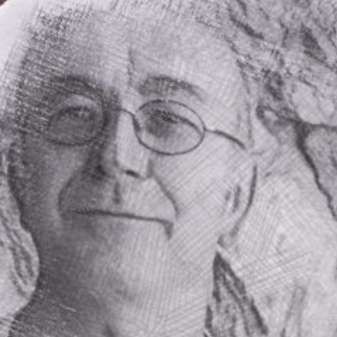In the week when the world of Physics was turned upside-down by neutrinos being found to travel faster than the speed of light, my physics world encountered another first – a carpeted church with a fantastic acoustic! St Michael’s Kirk, Inveresk – situated at the highest point of Musselburgh, East Lothian - played host to a sold-out concert featuring The Scottish Ensemble and their special guest, trumpet maestra, Alison Balsom.
The 14-strong Scottish Ensemble are visually distinctive in that the upper strings play standing up. There could be various reasons for this: space; ease of movement; raising and projecting the sound. Cynics have suggested that it ensures a youthful membership. Certainly their sound is youthful and vigorous. It is also beautifully balanced and musically very expressive, under the directorship of violinist, Jonathan Morton. The ensemble framed the evening with two of Handel's Concerti Grossi Op. 6 – nos. 6 and 7. These were simply perfect. Beautifully crafted pieces, beautifully played.
Alison Balsom, who has recently recorded a disc of Italian Concertos with the Scottish Ensemble, appeared in two guises: Baroque specialist playing an instrument of the period; 21st century musician, playing a recent commission on a modern-day instrument. The two baroque works highlighted Balsom not only as soloist but also as daring arranger/transcriber. The concertos, Vivaldi's Trumpet Concerto in D, Op 3 No 9 (RV 230) and Albinoni's Trumpet Concerto in B flat, Op.7 no.3 shared many qualities: finely articulated, clear textures; seemingly effortless control of dynamics; breathtaking technical facility – not least the final, high B flat of the Albinoni which drew a couple of exclamations from the audience. Impressive as these features were, I sensed that it was in the slow movements where the magic happened. Balsom's flawless, legato phrasing – across even the most awkward intervals – brought home something all too easily forgotten in the hype and distractions in music – that it's about the sound. In these slow movements the sound was so captivating, and the rapt attention of the audience so palpable, that a sense of communion - eclipsing the dust and divisions of the world – seemed present.
By way of contrast to the Italian flavour – and the multiple strings – a subset of the ensemble offered two Fantasias by Henry Purcell (1659-95). Fantasia No 7 in C minor Z 738 is a fantastic example of the highly inventive use of harmony which makes Purcell instantly recognisable. Preceding this was a piece which highlighted equally Purcell's compositional skill and the Scottish Ensemble's imaginative programming. Unlike the C minor Fantasia, which is scored for four players, the Fantasia upon One Note in F major Z745 is scored for five, one of whom plays a drone throughout the piece. Rather than have a musician leave the stage minutes after arriving, a quartet took to the stage, while violist Andy Berridge encircled the pews of this late Georgian church playing his solitary, pivotal C.
James Macmillan is perhaps best known for sacred choral works. Seraph, is described by the composer as “a concertino for trumpet and strings, containing three short movements.” The interesting point is that, despite appearances, it is specifically not a trumpet concerto. Indeed, in the second movement, the trumpet offers counter-melodies to solo violin or string section main themes and later engages in a dialogue with a solo violin. Written for Alison Balsom, Seraph finds Macmillan in neoclassical mode. Bitonal in places, and decidedly tonal throughout, this work had an atmosphere of cheer in many places – often assisted by jaunty syncopations. The many detached chords in the strings not only provide propulsion but highlight the singing nature of the trumpet. Another first in the evening was that, unless my memory fails me, this is the only piece I've heard which ends on a trill. To the best of my knowledge, this piece has yet to be recorded but I would certainly welcome another opportunity to hear it.
The sophisticated Lammermuir audience, realising that Alison Balsom would not return for the closing Handel Concerto Grosso, ensured that she felt the warmth of their appreciation. Such was the clamour at the end of the programme that the Scottish Ensemble returned for a welcome encore - Basse Dance from Peter Warlock's Capriol Suite – the embodiment of joie de vivre. Exiting the clotted aisles was reminiscent of disembarking a budget-price flight - with the distinction that my fellow passengers glowed as though refreshed and renewed.


